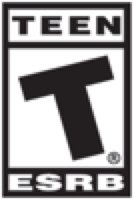MoneyGram International was a result of two businesses merging, Minneapolis-based Travelers Express and Denver-based Integrated Payment Systems Inc. MoneyGram was initially established as a subsidiary of Integrated Payment Systems and then became independent company before it was acquired by Travelers in 1998. In 2004, Travelers Express became what is known today as MoneyGram InternatioMoneyGram was formed in 1988 as a subsidiary of Integrated Payment Systems Inc Integrated Payment Systems was a subsidiary of First Data Corporation, which was itself a subsidiary of American Express. In 1992, First Data was spun off from American Express and publicly traded on the New York Stock Exchange. First Data Corporation later merged with First Financial, the owners of rival Western Union.
In 1996, Integrated Payment Systems, the nation's second largest non-bank consumer money transfer business, became its own publicly traded company and was renamed MoneyGram Payment Systems Inc. In 1997, James F. Calvano, former president of Western Union, became MoneyGram Payment Systems CEO.[
MoneyGram International Ltd. was established in 1997 by MoneyGram Payment Systems Inc. a year after the company had gone public.At the time when MoneyGram International was established, MoneyGram Payment Systems owned 51 percent of the company, while the other 49 percent was owned by the Thomas Cook In April 1998, Viad acquired MoneyGram Payment Systems Inc for $287 million. MoneyGram was then folded into Viad's Travelers Express in Minneapolis.
In 2003, Travelers Express gained full ownership of the MoneyGram network, including MoneyGram International.Later that year, Viad spun off Travelers Express as an independent company. In January 2004 and Travelers Express was renamed to MoneyGram International Inc.In June 2004, Viad sold MoneyGram and it became a publicly traded, individual entity.
By 2006, MoneyGram International had expanded internationally to include over 96,000 agents in regions such as the Asian-Pacific, Eastern Europe, and Central America. The company had also introduced additional services such as bill payment and online money transfers.
During the financial crisis, MoneyGram's shares fell 96 percent from 2007 to 2009It lost more than $1.6 billion from investments in securities backed by risky mortgages in 2008, and the losses led the company to sell a majority stake to Thomas H. Lee Partners and Goldman Sachs in exchange for a cash infusion During the drop, U.S. Bancorp shifted its money transfer services to Western Union. The company began to see profitability again in 2009
Amid MoneyGram's turnaround, Pamela Patsley became the executive chairman of the company in January 2009 and was later named CEO in September of that year. In November 2010, MoneyGram officially relocated its global headquarters to the city of Dallas, Texas.The company continues to maintain global operations and information technology centers in Minneapolis, Minnesota
In 2013 Moneygram began considering a sale. In 2014, Moneygram lost a relationship with Wal-Mart Stores Inc. and afterwards began a restructuring to cut costs. From their peak in 2013 until late 2015, shares fell about 70%. Moneygram closed a Global Customer Care Operations center in Lakewood, CO resulting in over 500 layoffs. Furthermore, MoneyGram closed its 376-person Brooklyn Center operation in 2015 Moneygram has offshored numerous positions to Warsaw, Poland from its Colorado and Minnesota locations for additional cost cutting. In 2015, the company's agent network in Africa reached 25,000 locations, including an agreement with the Mauritius Post Office.


















































